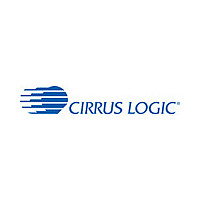CS493253-CLZ Cirrus Logic Inc, CS493253-CLZ Datasheet - Page 44

CS493253-CLZ
Manufacturer Part Number
CS493253-CLZ
Description
Audio DSPs IC Multi-Standard Audio Decoder
Manufacturer
Cirrus Logic Inc
Datasheet
1.CS493253-CLZ.pdf
(90 pages)
Specifications of CS493253-CLZ
Lead Free Status / RoHS Status
Lead free / RoHS Compliant
Available stocks
Company
Part Number
Manufacturer
Quantity
Price
Company:
Part Number:
CS493253-CLZ
Manufacturer:
CRYSTAL
Quantity:
13 888
Company:
Part Number:
CS493253-CLZR
Manufacturer:
CirrusLogic
Quantity:
478
When using automated communication ports,
however, the host is often limited to sampling the
status of INTREQ after an entire byte has been
transferred. In this situation a low-high-low
transition (case 3) would be missed and the host
will see a constantly low INTREQ pin. Since the
host should read from the CS493XX until it detects
that INTREQ has gone high, this condition will be
treated as a multiple-message read (more than
one read response is provided by the CS493XX).
Under these conditions a single byte of 0x00 will be
read out before the unsolicited message.
The length of every read response is defined in the
user’s manual for each piece of application code.
Thus, the host should know how many bytes to
expect based on the first byte (the OPCODE) of a
read response message. It is guaranteed that no
read responses will begin with 0x00, which means
that a NULL byte (0x00) detected in the OPCODE
position of a read response message should be
discarded. Please see an Application Code User’s
Guide for an explanation of the OPCODE.
It is important that the host be aware of the
presence of NULL bytes, or the communication
channel could become corrupted.
When case (3) occurs and the host issues a stop
condition before starting a new read cycle, the first
byte of the unsolicited message is loaded directly
into the shift register and 0x00 is never seen.
Alternatively, if case (3) occurs and the host
continues to read from the CS493XX without a
stop condition (a multiple message read), the 0x00
byte must be shifted out of the CS493XX before
the first byte of the unsolicited message can be
read.
In other words, if a system can only sample
INTREQ after an entire byte transfer the following
routine should be used if INTREQ is low after the
last byte of the message being read:
1) Read one byte
2) If the byte = 0x00 discard it and skip to step 3.
3) Read one more byte. This is the OPCODE for
4) Read the rest of the message as indicated in
44
If the byte != 0x00 then it is the OPCODE for
the next message. For this case skip to step 4.
the next message.
6.2. Parallel Host Communication
The parallel host communication modes of the
CS493XX provide an 8-bit interface to the DSP. An
Intel-style parallel mode and a Motorola-style
parallel mode are supported. The host interface is
implemented using four communication registers
within the CS493XX as shown in
Input/Output Registers,” on page
When the host is downloading code to the
CS493XX or configuring the application code,
control messages will be written to (and read from)
the Host Message register. The Host Control
register is used during messaging sessions to
determine when the CS493XX can accept another
byte of control data, and when the CS493XX has
an outgoing byte that may be read.
The PCM Data and Compressed Data registers
are used strictly for the transfer of audio data. The
host cannot read from these two registers. Audio
data written to registers 11b and 10b are
transferred directly to the internal FIFOs of the
CS493XX. When the level of the PCM FIFO
reaches the FIFO threshold level, the MFC bit of
the Host Control register will be set. When the level
of the Compressed Data FIFO reaches the FIFO
threshold level, the MFB bit of the Host Control
register will be set.
It is important to remember that the parallel host
interface requires the DATA[7:0] pins of the
CS493XX. The external memory interface also
requires the DATA[7:0] pins so the Parallel host
control modes can only be used if external memory
is not required.
A detailed description for each parallel host mode
will now be given. The following information will be
provided for the Intel mode and Motorola mode:
•
•
•
The four registers of the CS493XX’s parallel host
mode are not used identically. The algorithm used
for communicating with each register will be given
the previous sections.
The pins of the CS493XX which must be used
for proper communication
Flow diagram and description for a parallel
byte write
Flow diagram and description for a parallel
byte read
CS49300 Family DSP
Table 5, “Parallel
45.
DS339F7
















